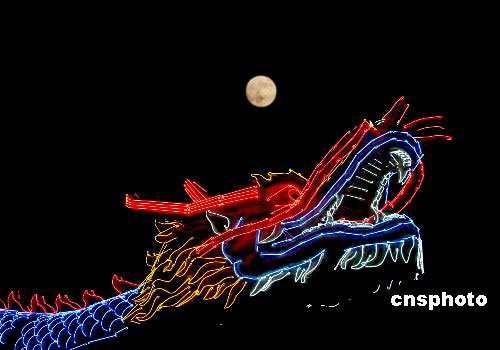Fullest moon a day after Mid-autumn Day
时间:2006-10-09 07:00:39
(单词翻译:单击)

| Enjoying the round moon and eating mooncakes with the family on the 15th day of the eighth month on the lunar calendar is a Chinese tradition. This year's Mid-Autumn Day falls on Friday, October 6. |
| Oct. 8 - Chinese people used to enjoy the fullest moon on Mid-Autumn Day, but it won't be at its fullest on Friday and not on this festival until 2011, according to a Chinese astronomer1.
The fullest moon around the Mid-Autumn Day this year will be 11:13 a.m. Saturday, a day later than the festival set by the lunar calendar, said Zhao Zhiheng, of the Astronomy2 Society of Tianjin. The fullness is decided3 by the speed at which the moon orbits the earth. It slows when the moon moves on the far section of the elliptical circle from the earth, an result of universal gravitation. The nearest point on the elliptical track is 360,000 kilometers from the earth while the farthest is 400,000 kilometers, said Zhao. From 2002 to 2005, the moon was fullest on the 15th day of the eighth month on the lunar calendar, which was the Mid-autumn Day, but from this year to 2010, it would be one day later. In the past 19 years, the moon was fullest on Mid-Autumn Day in seven years, one day later in nine years and two days later in three years. The moon becomes round every 29.5 days, said Zhao. Enjoying the round moon and eating mooncakes with the family on the 15th day of the eighth month on the lunar calendar is a Chinese tradition. This year's Mid-Autumn Day falls on Friday, October 6.
|
点击 收听单词发音
收听单词发音
 收听单词发音
收听单词发音
1
astronomer

|
|
| n.天文学家 | |
参考例句: |
|
|
|
2
astronomy

|
|
| n.天文学 | |
参考例句: |
|
|
|
3
decided

|
|
| adj.决定了的,坚决的;明显的,明确的 | |
参考例句: |
|
|
|
©2005-2010英文阅读网




